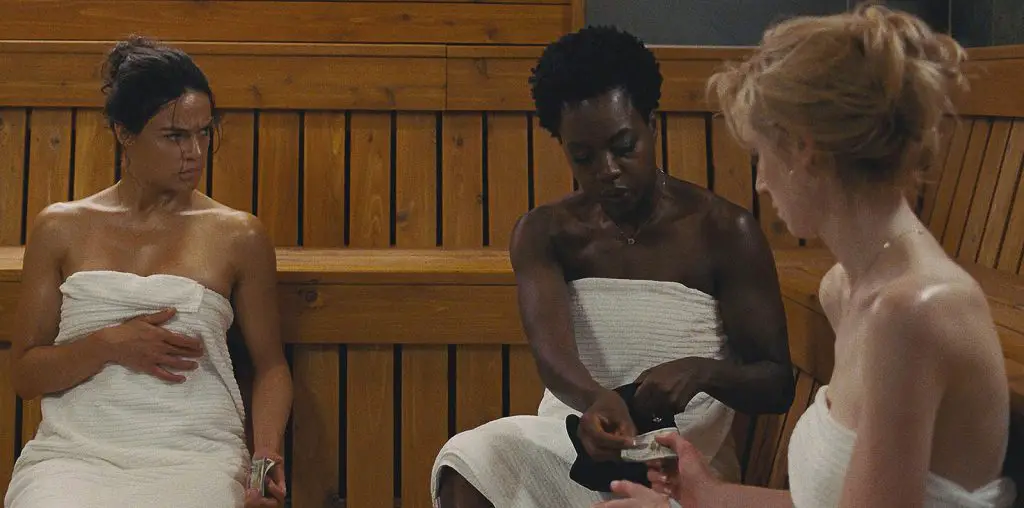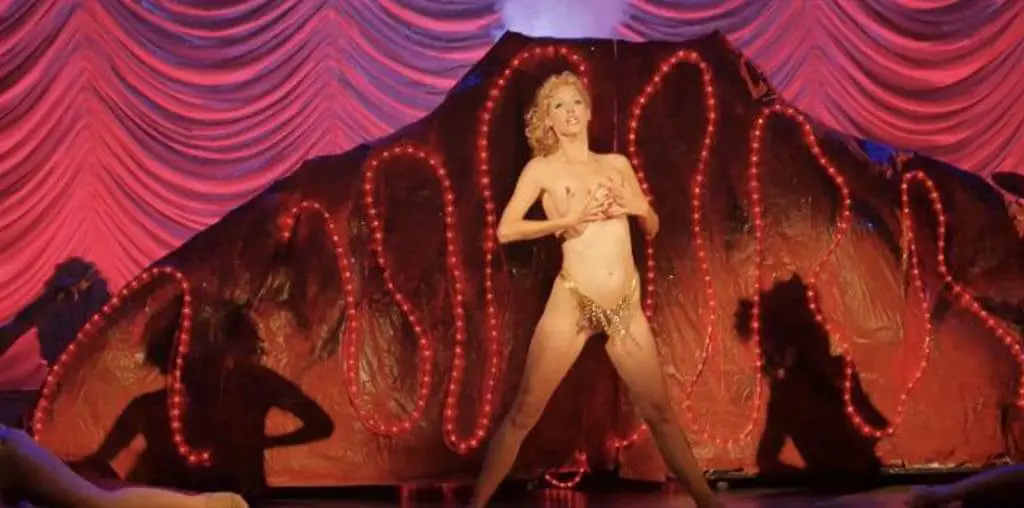
Early on in writer/director Tyler Pina’s short film 88 Cents, protagonist Thomas (Matthew Weitz) encounters a homeless man begging for change on a San Francisco street corner, and – though his own funds are severely limited – he gives what little he can, knowing that the other man’s need is greater than his own.
Thomas’s benevolent act is paid off in a very powerful moment later on, but not in a way that any sympathetic viewer would want it to be. Taken together, these two mirroring scenes are the film’s dramatic core, and they’re a stark and concise indicator of just how hopeless a vision Pina is offering up. Fair warning: 88 Cents is a sad film, often crushingly so, and in large part, that’s because it doesn’t much exaggerate or sensationalize the bleak corner of modern life that it explores – this is social realism that doesn’t need gloss or melodrama to make its point.
The film’s subject is homelessness, and its central character is a fresh-faced, clean-cut young guy who’s seeking to make a fresh start after serving a few years in prison. Thomas arrives in the city with a little bit of cash, the address of the benefactor who sent it to him, and what seems like a genuine desire to do something useful with his life. Before he can do much of anything, though, he needs a few basic things: a job, a place to live, and enough money to feed and clothe himself. As 88 Cents clearly points out, these needs are all inseparably dependent upon one another, and Thomas quickly finds that without any real safety net to sustain him, his struggle to get on his feet is an increasingly desperate and dehumanizing one.

“…his struggle to get on his feet is an increasingly desperate and dehumanizing one.“
Pina’s key storytelling device is not giving Thomas a voice; the film isn’t silent, and the character has the ability to speak, but he doesn’t have a single word of dialogue at any point in his own story. That, of course, means that Weitz has to communicate a lot without saying anything, and he delivers a remarkably moving performance that wordlessly captures the ever-downward trajectory that Thomas is powerless to reverse. Thomas’s transformation from the film’s opening scenes to its climax is extremely well-realized, not only in the dramatic physical changes the actor undergoes but also the smaller shifts in demeanor and expression that accompany his progressively more harrowing situation.
This incredibly committed performance drives 88 Cents as it chronicles predicaments and injustices both obvious – sleeping on sidewalks while people indiscriminately piss nearby, attempting to bathe in a public restroom sink, guarding his meager possessions against less decent street people – and wholly unanticipated. In a scene that’s almost blackly comic in its pessimism and absurdity, Thomas is turned away at a shelter simply because he arrived there of his own accord; this particular place serves only those who were detained and brought in by the police.
Pina’s directorial touch throughout all of this remains firm-handed, and it’s confident enough to let situations play out without tipping over into melodramatic excess. The film also has a good feel for its San Francisco setting, without being so specific to the locale that the story lacks universality – what happens to Thomas can, of course, happen pretty similarly anywhere.

“…a tough watch that’s well worth the effort.”
In fact, if there’s anything major to criticize about 88 Cents, it’s only that the film leans a bit too heavily toward keeping things general over developing its protagonist in detail. The approach is certainly justifiable – Thomas’s struggle to survive on the streets is so immediate, it leaves little space to reflect on who he is as a person – but, without suggesting much at all about his history, the film perhaps misses an opportunity to develop an inner conflict to dovetail with the external challenges he faces. It’s not necessarily a problem that we never find out, for example, why Thomas ended up in prison or who was kind enough to send him some money while he was locked up, but even some small, subtle connections to his earlier life might make his present narrative feel more complete and resonant.
Perhaps that’s a matter of taste, though, and the way that 88 Cents so powerfully articulates the fact that Thomas is playing a game that’s hopelessly rigged against him is bound to leave a lasting impression regardless. It’s a commendable effort from everyone involved, a tough watch that’s well worth the effort.

88 Cents (2018) Written and directed by Tyler Pina. Starring Matthew Weitz, Jason E. Willis, Rasheed Custer, Cedric Dotson, Ina Danilyuk, Tre Shallowhorn
7.5 out of 10



Spot on review. As elegant as the movie is rough. At its present length, it’s perfect, but Mr. Scalia’s idea of fleshing out the character could work if they get the opportunity to turn it into a full length flick (I don’t know if that’s even something they want to do). I was so glad to get the opportunity to see 88 Cents at a festival. Bravo.